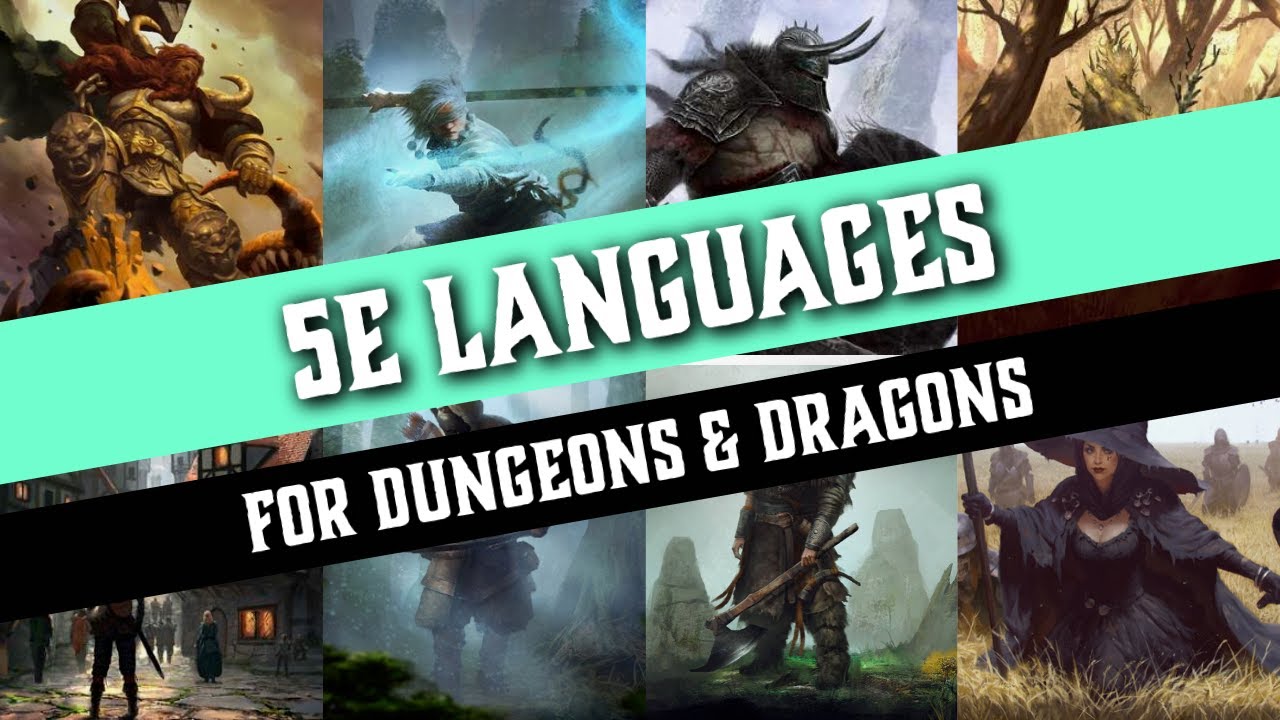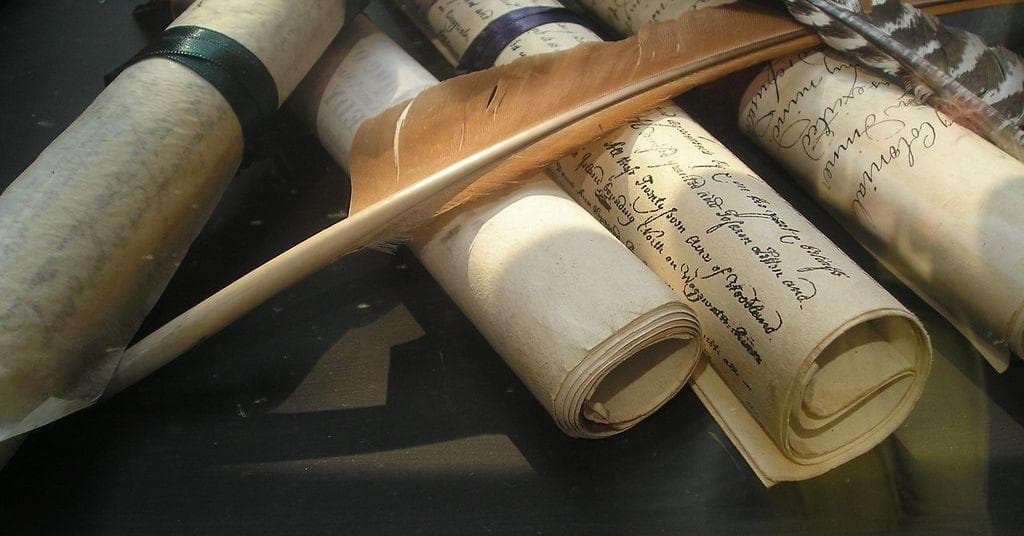So, here's the deal, folks. If you're diving into the world of Dungeons & Dragons, you're about to embark on a seriously epic journey. And let me tell you, one of the coolest parts of this adventure? Yeah, it's all about the dungeons and dragons languages. These aren't just random sounds or scribbles; they're the keys to unlocking deeper layers of storytelling and immersion. Stick around, because we're about to dive headfirst into the linguistic magic that makes D&D so darn special.
Now, before we get too far, let's break it down. Dungeons & Dragons isn't just about rolling dice or slaying dragons—though, let's be real, those parts are pretty awesome too. It's about crafting a world that feels alive, and part of that life comes from the languages your characters speak. Whether you're a seasoned dungeon master or a newbie adventurer, understanding these languages can transform your gameplay. It's not just about saying "hello" in Elvish; it's about giving your character a voice that resonates with the fantasy world.
And guess what? This isn't just for show. These dungeons and dragons languages can actually impact your gameplay. From decoding ancient runes to negotiating with monsters, the ability to communicate in the right tongue can mean the difference between success and failure. So, if you're ready to level up your D&D game, keep reading. We're about to spill all the beans on the magical languages of the realms.
Table of Contents
- Overview of Dungeons and Dragons Languages
- The Common Tongues: Your Go-To Languages
- Elvish Magic: The Language of Poetry and Song
- Dwarvish Stones: The Language of Earth and Metal
- Draconic Flames: The Language of Power and Fire
- Sub-Languages: The Hidden Tongues
- Why Languages Matter in Dungeons & Dragons
- How to Learn and Master These Languages
- Gameplay Tips for Using Languages
- Conclusion: Speak the Magic
Overview of Dungeons and Dragons Languages
Alright, let's start with the basics. In the world of Dungeons & Dragons, languages aren't just tools for communication; they're part of the fabric of the game. Each language represents a culture, a history, and a way of thinking. There are over a dozen official languages in the Player's Handbook alone, and each one adds depth to the world you're playing in.
These dungeons and dragons languages aren't just random noises either. They're carefully crafted systems with their own rules, alphabets, and sounds. Some are elegant and flowing, while others are guttural and rough. It's like a linguistic buffet, and you get to choose what your character speaks based on their background, race, and class.
And here's the kicker: not all characters speak the same languages. Some might only know Common, while others can communicate in multiple tongues. This adds layers of complexity to interactions, especially when you're dealing with NPCs or other players. It's not just about what you say; it's about how you say it and in what language.
The Common Tongues: Your Go-To Languages
Let's talk about the bread and butter of D&D languages: Common. This is the universal language of the realms, spoken by most humanoid races. Think of it as the English of the fantasy world. It's the language of trade, diplomacy, and everyday conversation.
But don't sleep on the other common tongues, like Halfling or Gnomish. These languages might not be as widely spoken, but they carry their own cultural significance. Halfling, for example, is known for its playful and rhythmic nature, reflecting the carefree lifestyle of its speakers. Gnomish, on the other hand, is full of riddles and puns, making it a favorite among tricksters and storytellers.
Why Common Matters
Even if your character speaks multiple languages, Common is still essential. It's the glue that holds the party together, allowing everyone to communicate and cooperate. Without it, things can get messy fast. Imagine trying to negotiate with a dragon when no one speaks Draconic. Not ideal, right?
Elvish Magic: The Language of Poetry and Song
Now, let's get poetic. Elvish is hands down one of the most beautiful languages in D&D. It's melodic, flowing, and steeped in ancient traditions. If your character is an elf or has elven heritage, this is a must-know language. It's not just about speaking; it's about feeling the magic in every word.
Elvish is often used in spells, incantations, and songs. It's the language of nature and the elements, making it perfect for druids and bards. Plus, let's be honest, it sounds absolutely fantastic when spoken out loud. So, if you're looking to add some flair to your character, Elvish is the way to go.
Tips for Speaking Elvish
- Emphasize the vowels and let them flow together.
- Practice with simple phrases like "Aen merilannen" (I am beautiful).
- Use Elvish names for your characters to really immerse yourself in the culture.
Dwarvish Stones: The Language of Earth and Metal
On the flip side, we have Dwarvish. This language is all about strength and resilience. It's spoken in deep, guttural tones and often used in mining and crafting. If your character is a dwarf or works with metal, Dwarvish is a natural fit.
What sets Dwarvish apart is its connection to the earth. It's not just a language; it's a way of life. Dwarves use it to communicate with the stones themselves, tapping into the ancient magic of the mountains. This makes it incredibly useful for characters who specialize in earth-based magic or engineering.
Mastering Dwarvish
Here are a few tips to help you get started:
- Focus on strong consonants and short syllables.
- Learn key phrases like "Khazak" (Strength).
- Use Dwarvish runes in your character's gear for added authenticity.
Draconic Flames: The Language of Power and Fire
And then there's Draconic, the language of dragons. This one's all about power and intimidation. It's spoken in sharp, hissing tones and often used in combat. If your character is a sorcerer or warlock with draconic heritage, Draconic is a no-brainer.
What makes Draconic unique is its connection to magic. Many spells and incantations are written in Draconic, making it a valuable asset for spellcasters. Plus, it's just plain cool to say things like "Baasul" (Fire) during a battle. Who wouldn't want that?
Learning Draconic
Here's how you can start:
- Practice the hissing sounds and sharp consonants.
- Learn basic phrases like "Veyon" (Power).
- Use Draconic names for your spells to add an extra layer of mystique.
Sub-Languages: The Hidden Tongues
But wait, there's more! In addition to the main languages, there are also sub-languages that add even more depth to the game. These are often spoken by specific groups or in specific regions, making them perfect for niche characters.
For example, there's Abyssal, spoken by demons and other chaotic creatures. Or Infernal, the language of devils and lawful evil beings. These languages aren't just for villains; they can be incredibly useful for characters who want to understand the darker sides of the world.
Exploring Sub-Languages
Here are a few to check out:
- Abyssal: Perfect for chaotic evil characters.
- Infernal: Great for lawful evil characters.
- Primordial: Ideal for elemental creatures.
Why Languages Matter in Dungeons & Dragons
So, why does all this matter? Well, languages aren't just about communication; they're about immersion. They help you connect with the world and its inhabitants on a deeper level. Whether you're negotiating with a king or battling a dragon, knowing the right language can make all the difference.
Plus, let's not forget the role-playing aspect. Speaking in character and using the appropriate language can add so much to the experience. It's one thing to say "Hello" in Common; it's another to greet someone in Elvish or Dwarvish. It shows that you've done your homework and are fully committed to the game.
How to Learn and Master These Languages
Now, I know what you're thinking. Learning all these languages sounds like a lot of work. And you're right; it can be. But don't worry, there are resources out there to help you. The Player's Handbook is a great starting point, but there are also online communities and guides that can provide additional support.
Here are a few tips to get you started:
- Focus on one or two languages at a time to avoid overload.
- Practice speaking the languages out loud to get a feel for the sounds.
- Use language apps or YouTube videos to supplement your learning.
Gameplay Tips for Using Languages
Finally, let's talk about how to use these languages in gameplay. The key is to be strategic. Don't just throw them around randomly; think about when and where they'll be most effective. For example, using Draconic in a battle can intimidate your enemies, while speaking Elvish in a diplomatic encounter can show respect for the culture.
Also, don't be afraid to mix things up. Just because your character speaks Common doesn't mean they can't learn a new language mid-campaign. This adds depth to your character and keeps things interesting for both you and your fellow players.
Conclusion: Speak the Magic
So, there you have it, folks. The world of Dungeons & Dragons is rich with languages, each one offering its own unique flavor and advantages. Whether you're a fan of the melodic Elvish or the powerful Draconic, there's a language out there for everyone. So, grab your dice, dust off your spellbooks, and get ready to speak the magic.
And remember, the beauty of D&D lies in its diversity. Don't be afraid to experiment with different languages and see what works best for your character. After all, the more you immerse yourself in the world, the more rewarding the experience becomes. So, what are you waiting for? Go out there and make some linguistic magic happen!
Got any questions or tips of your own? Drop a comment below and let's chat. And if you liked this article, don't forget to share it with your fellow adventurers. Happy gaming, folks!


